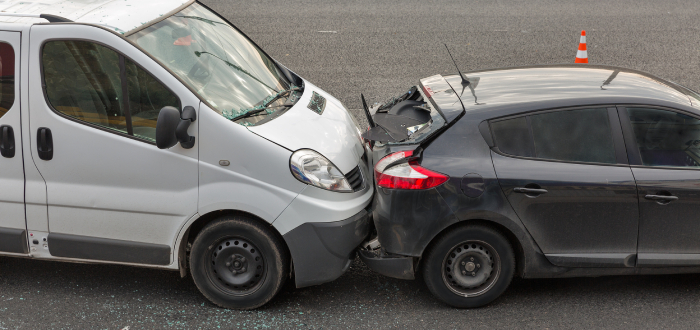Have you recently been involved in a rear-end collision involving a truck? If this is the case, it is important to take specific steps to ensure your safety and to address legal and insurance issues properly. Here is a detailed summary of the steps you should take:
- Ensure Safety First and Call The Police: Move your vehicle to a safe area away from traffic. Turn on your hazard lights to alert other drivers. Regardless of the severity of the accident, it is crucial to call the police. A police report can be invaluable in legal and insurance matters.
- Check for Injuries: Assess yourself and any passengers for injuries. Do not move if you are severely injured. Call emergency services immediately if anyone is hurt.
- Exchange Information: Exchange contact and insurance information with the truck driver. This includes names, addresses, phone numbers, insurance company names, and policy numbers.
- Document the Scene: Take photos of the vehicle damages, your injuries, the truck, the road conditions, traffic signs, and any other relevant details. If there are witnesses, get their contact information as well.
- Seek Medical Attention: Even if you do not think that you are seriously injured, it is important to see a doctor. Some injuries, like whiplash, may not be immediately apparent. Continue to monitor your health by following up with medical professionals regarding any injuries. Some symptoms may appear or worsen days after the accident.
- Notify Your Insurance Company: Report the accident to your insurance company as soon as possible. Provide them with the information you gathered and cooperate fully, but be cautious about admitting fault or giving a recorded statement without consulting an attorney.
- Keep Records: Keep all documentation related to the accident, including the police report, medical bills, repair estimates, and any correspondence with insurance companies. Keep all of your documents organized throughout the process.
- Consult an Attorney: Consider consulting with an attorney, especially if there are significant damages or injuries. An attorney can provide guidance on your legal rights and help you navigate the complexities of insurance claims and potential lawsuits. Continue to follow the advice of your attorney and medical professionals. Adhering to your treatment plan and legal strategy is crucial for your recovery and the success of any legal claim.
- Consider All Damages: When seeking compensation, consider all damages, including medical expenses, lost wages, pain and suffering, and any other losses resulting from the accident.
- Be Aware of Deadlines: Keep in mind that Texas has a two (2) year statute of limitations for filing personal injury claims. Failure to file within this period can result in losing your right to sue the person or entity responsible for your injury.
- Follow Up on Repairs: Arrange for vehicle repairs. Ensure that your vehicle is thoroughly checked and repaired by a qualified mechanic.
- Practice Self-Care: Accidents can be traumatic. Pay attention to your emotional well-being, and consider seeking support from a therapist if needed.
Takeaway
Automobile accidents can be complex, especially when a truck is involved in an accident with your vehicle. Steps may need to be taken that are unique to your individual situation. Contact Ceja Law Firm, PLLC to help you determine what you need to do to protect yourself legally if you have been involved in a rear-end truck collision in Texas.
